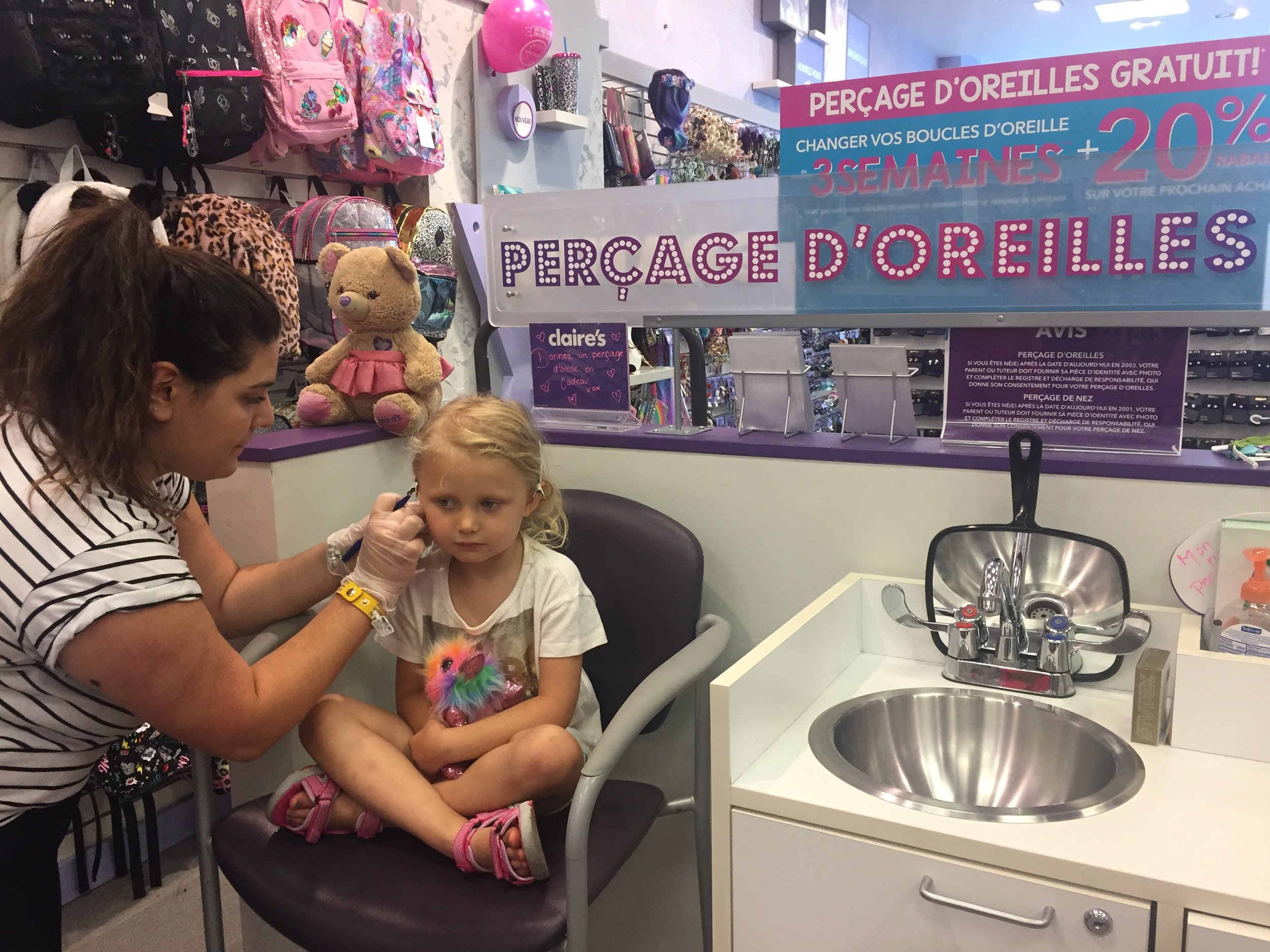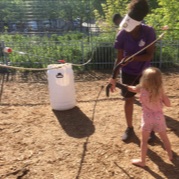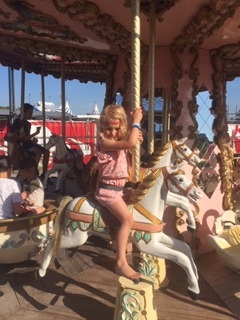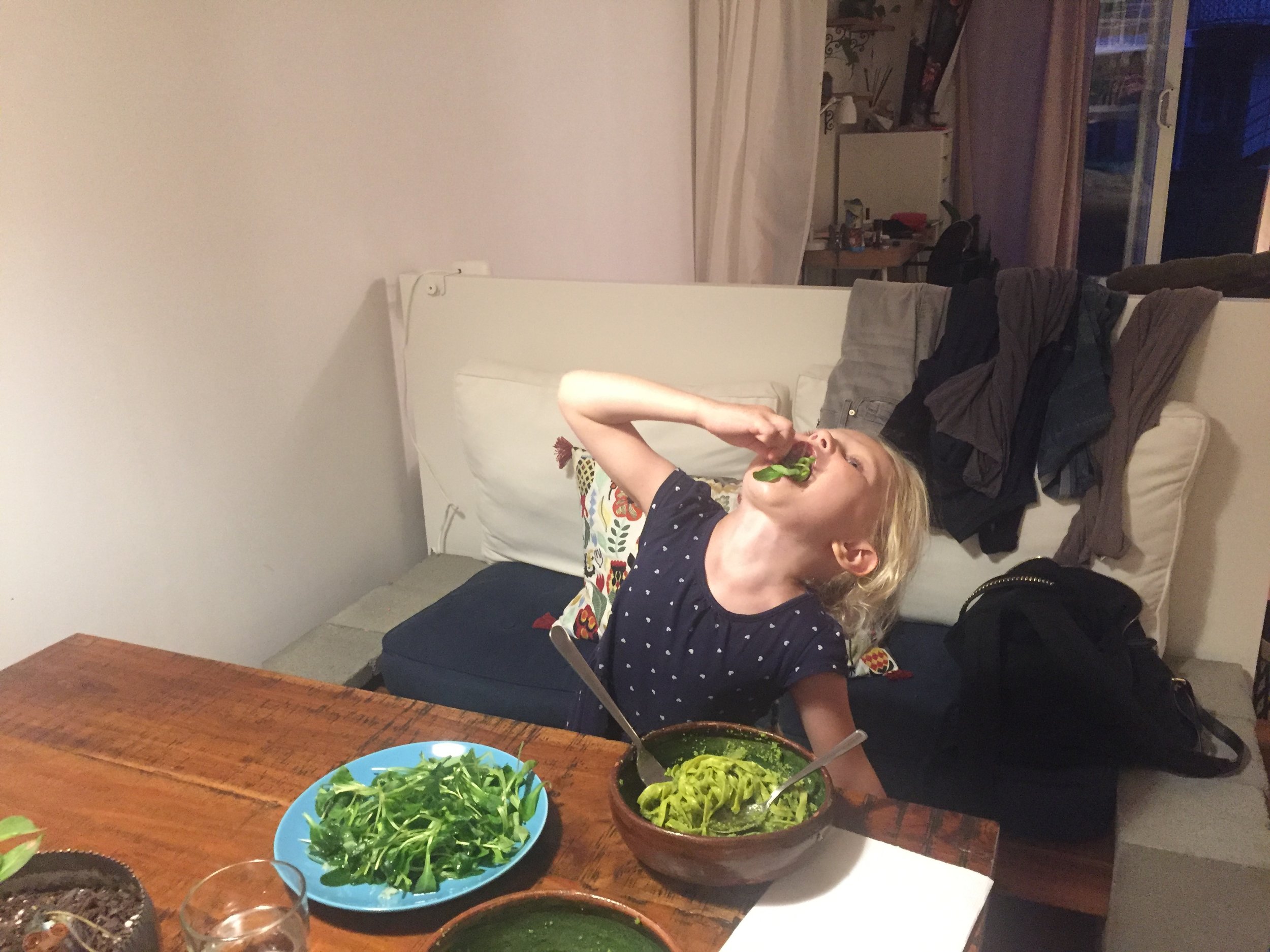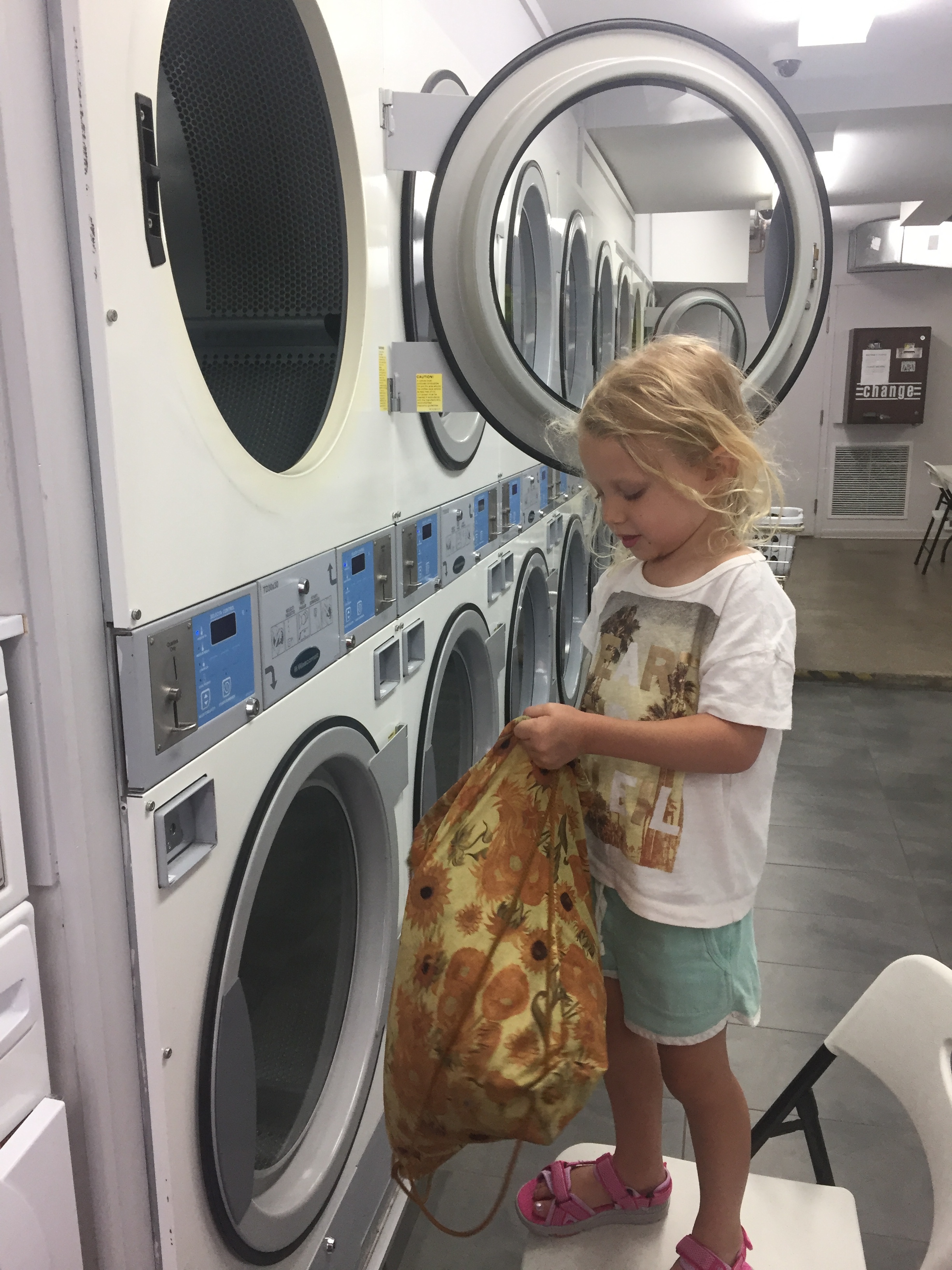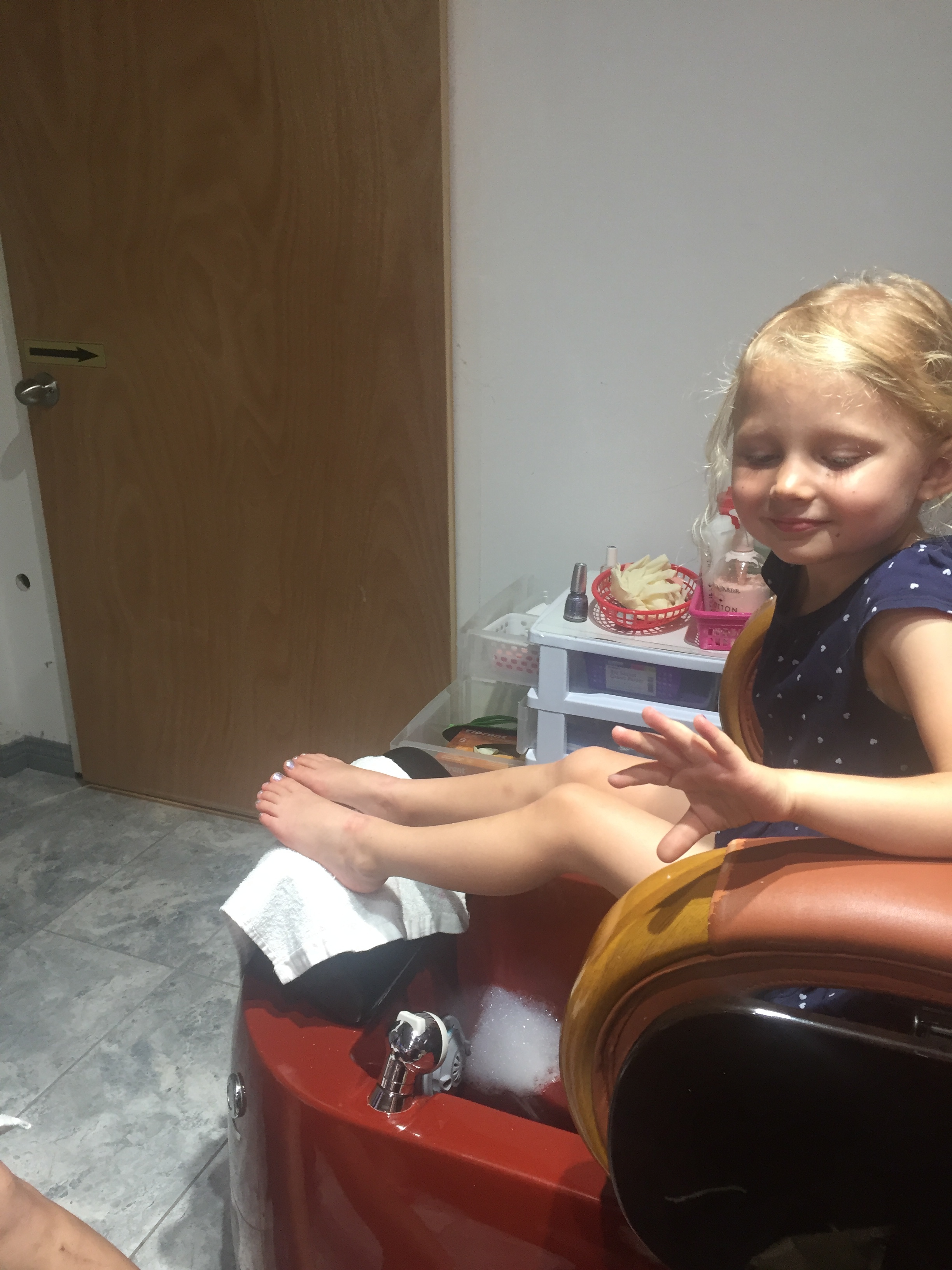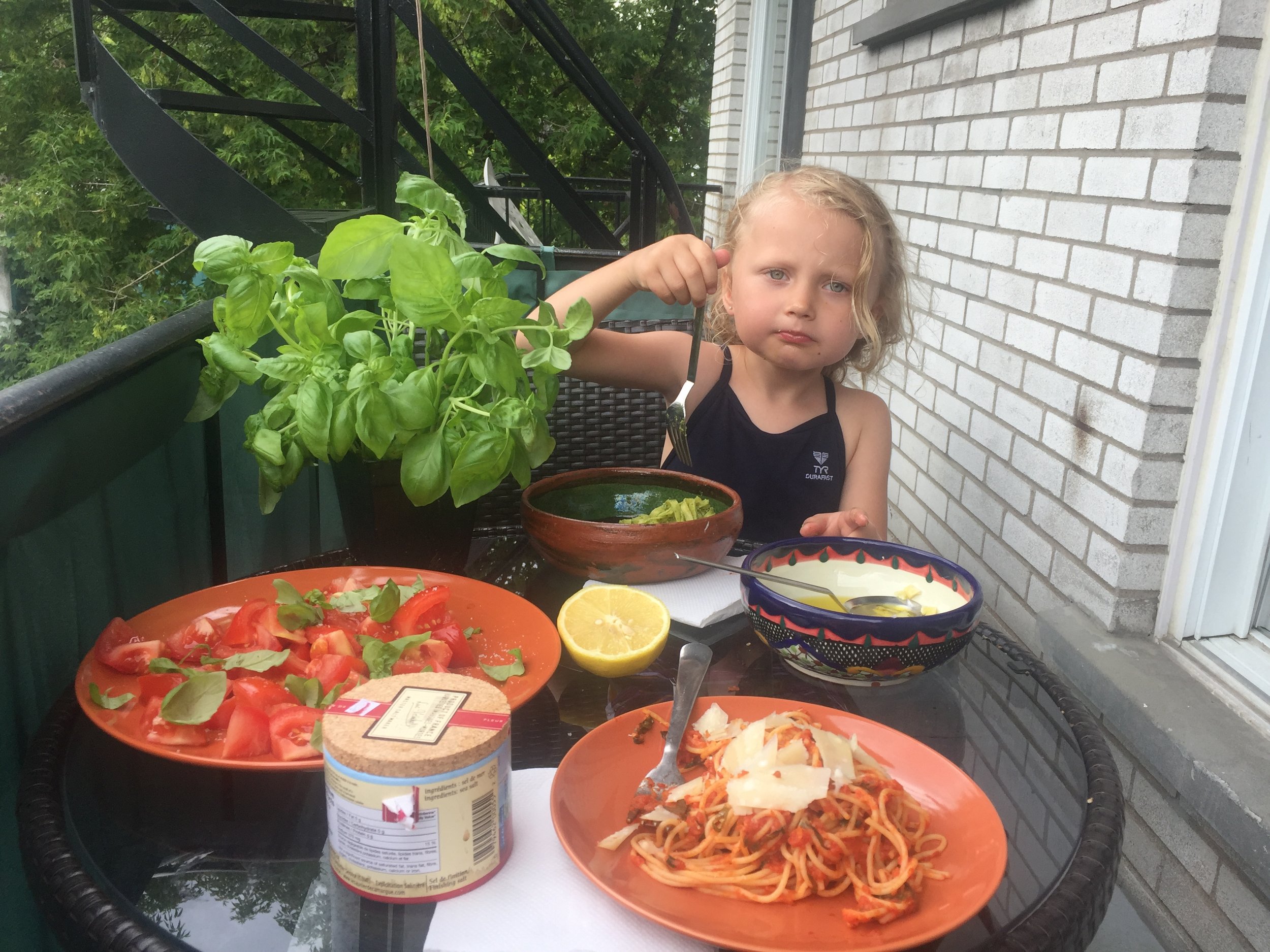WE'LL ALWAYS HAVE MONTRÉAL
Dîner pour deux, at our bite-sized Airbnb studio in Plateau-Mont-Royal, Montréal.
I recently took to calling myself “Fake French” when asked about my origins upon speaking the language. This self-deprecation came as a relief after years of trying to fit in with the Real French: my husband’s restaurant colleagues and the parents at my kids’ dual-language schools. I’m a midwestern girl from a border town—the border of Minnesota and Wisconsin that is—who has made fluency in French, for herself and her children, part of her identity and one of her dreams.
Frankly, this pursuit has been less about any Francophilia I may possess than the high of adult second-language learning. After years of plugging away at French studies between junior high and undergrad, where I learned the rudiments and little else, I moved to France for a serious immersion program. Speaking English was banned and I experienced what can happen when you don’t have a choice—necessity as the mother of fluency. It was a thrill of awakening that grew each day, a feeling I have likened to the childhood we can’t recall. That feeling has kept me fighting to hold French close, to keep getting better, to pass it on to my kids, and to crave more languages—for everything that different languages unlock, for the intellectual confidence they give.
So here I find myself in Québec, a country that has fought for its French, with my nine-year-old son William at sleep-away camp in the country and my four-year-old daughter Cordelia playing French in the City with me.
What could be more Fake French of me than to visit Daniel’s Montréal spot, Maison Boulud…
Since she was four months old, Cordelia has spent five days a week with a nanny or in school. Our girls’ week in Montréal has been the most time we’ve spent alone together by far, and it has been slow, at times lonely, sometimes achingly sweet, and emotionally fascinating—for the always-revealing distance between romance and reality as well as the quandary of excessive free time. So desperate to “power off,” it seems I barely know how. My vision of a mother-daughter utopia, eating croissants while I read/write and she colors quietly, had to be adapted. Not only are there few boulangeries here but Cordelia is not yet the quiet-coloring kind.
We spent every morning playing at a nearby pataugeoire, the boon of this trip!
I had to learn to understand Montréal, too. After days trying to figure out the accent, I realized—they don’t have one! From the vantage point of a French-speaking Minnesotan, Québécois is a sort of Fargo-French, as if a middle-American learned French and pronounced it phonetically, without that tricky guttural “r” nor much liaison, the lyrical linking of consonant endings with initial vowels.
Most notably, the Québécois seem to have phased out the second-person formal, which is all but religion in the Old Country. Unless you are speaking to children, you do not use the familiar “you” pronoun until you have really gotten to know someone or slept with them. Here in Montréal (without sleeping with anyone), I’ve been surprised to be addressed with the informal “tu” by strangers of all genders and every age. Less dramatically, “Quebecers” have been free to make common-sense vocabulary edits, like calling limes “limes” instead of “green lemons.” The result is a clear and direct French; what was once a pastiche of dialects is now their own.
“I always thought it was books that crossed the centuries to reach us until I realized it was the reader who made the trip.” Words by Dany Laferrière, a writer and intellectual of Haïtian descent and prized resident of Montréal. Instead of a language lost between the cracks of English and French, Québécois seems doubly rich, inspiring an excess of dual-language bookstores and citizens who are equally comfortable speaking either language and happy to defer to their guests.
In 1928, on an unplanned stay in Québec City, 150 miles from Montréal, Willa Cather was so intrigued to find a little piece of France in eastern Canada, she wrote Shadows on the Rock. Set in 1697, the novel takes place amongst the first wave of French colonists who had left civilization and corruption at home for the wilderness and its freedom. In 1760, the French lost Montréal to the British Army and until recently the city has remained in a tug-of-war between French and English, between its emotional Gallic ties and the commercial power of the Crown.
The first edition dust jacket. I love seeing the balanced text treatment of so much copy—’tis possible!
An island like Manhattan with Minneapolis winters, Montréal today is a city of 1.8 million with a downtown about as distinctly French as its Louis Vuitton. My host neighborhood of Plateau Mont-Royal, however, is a sort of Paris-Portland love child: French-speaking but with few smokers, much less gluten, and funny raised sidewalk cafés serving everything but steak frites. There are lots of easy-paced runners, blended families everywhere, and bike-mania, with more lanes for cyclists than cars. Instead of Paris attitude, they have something more akin to Minnesota nice, not as chic but certainly more tranquille.
Most restaurants boast raised and enclosed outdoor terraces like this one. Different from the sprawling sidewalk cafés of Europe that mingle with pedestrians, these make a tidier statement.
That would be street parking BETWEEN the bike and motor vehicle driving lanes, protectively separating cyclists and cars.
There are things you fight for all your life and maybe not until halfway through does success start to seem possible—not the self-help twaddle that “you can do anything you put your mind to” but a deeper truth that you can pretty nicely do some things you’ve put your mind to over the course of many years. To be conducting life in French with Cordelia while William is doing the same at camp, to write William emails in French each day, notes the camp prints and delivers to his tent, has all been immensely gratifying and poignant for me. It may beg the question who this trip was really for, but I hope to learn on seeing William again, one week older and camp-wiser, that it was for the betterment of us all.
To really mark the occasion, the girls pierced their ears! The honors went to a Claire’s in downtown Montréal much like the Wisconsin one that pierced mine circa ‘87. Believe it or not, our piercer was named Cassandra! I even got a “this-is-40” upper-ear piercing to share the experience. (Figuring it was better than tattoos…)
In 1977, Camille Laurin (1922-1999) made French the official language of Québec with his French Language Charter and declaration, “Language is the shared foundation of a people, that by which it is recognized and known, which intertwines itself with its being and allows its identity to be expressed…” Until Laurin’s charter, “French Canada” was caught between cultures, a dragged-out tension that was better off resolved. In 1996, caught between the class cultures of my depressed hometown and private school, I went to France for the first time and began to make international travel part of my identity. This soon led me to Kalamazoo College, known for its study abroad program, and a formative year in France. Until then, I was a girl from Superior, Wisconsin who was lucky to travel ten minutes to Duluth each day.
I guess if you don’t define yourself, somebody else will.
1. Cordélia d’Arc
2. Carousel at Le Vieux Port
3. First mâche salade, the delicate and delicious “lamb’s lettuce” that I discovered in Provence
4. La Grande Roue de Montréal
5. Nothing says immersion like a laundromat.
6. Manis in Montréal!
7. A Provençal lunch on our terrace
8. Mother and daughter on the Roue!








